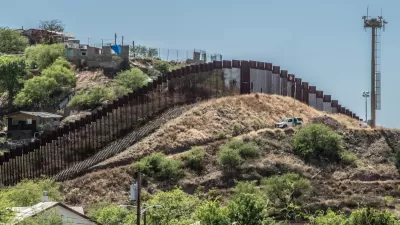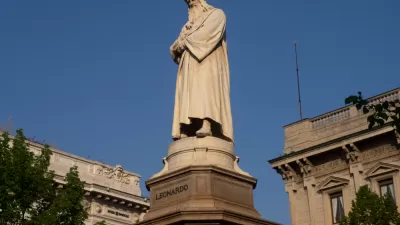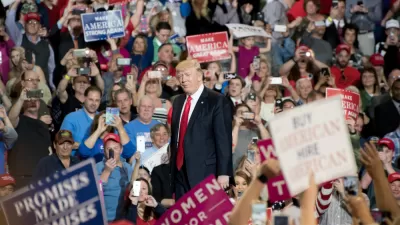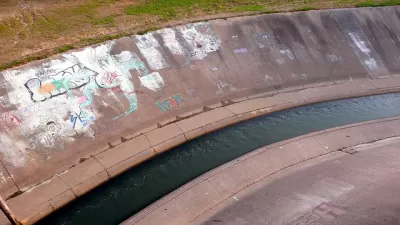President Trump has fallen short of 2016 promises to update and upgrade the key infrastructure of the United States, according to this article.

Jeff Stein provides analysis and commentary on the track record of the Trump administration on infrastructure—one of the key planks of the platform that won the president the election in 2016, but has since become a punchline for pundits.
Trump can claim credit for pursuing and at least partially fulfilling many of his key 2016 economic campaign pledges, such as cutting taxes, slashing government regulations and revamping America’s international trade deals. But on one central part of his economic pledge — a massive infrastructure package — the president has much less to boast of on the campaign trail.
The evidence backing this accusation includes receipts:
Trump has through four years in office failed to advance infrastructure legislation through Congress. Under his administration, federal investments on roads and bridges as a share of the economy have remained stagnant, while federal spending on water infrastructure projects have fallen to a 30-year low.
For the counterargument, Stein cites Trump's speeches on the campaign trail in 2020, where the president talks about the border wall ("We consider that infrastructure," said the president at the Economic Club of New York earlier this month) and the deregulatory accomplishments of the administration, which have reduced environmental review for infrastructure projects.
Stein finds many blue collar workers in battle ground states who are more interested in the lack of spending for infrastructure (Trump promised as much as $2 trillion in spending) and bureaucratic drag on other projects, even before the pandemic proved inadequate to inspire action by Republican leadership as it lingered past the summer.
FULL STORY: Trump’s 2016 campaign pledges on infrastructure have fallen short, creating opening for Biden

Alabama: Trump Terminates Settlements for Black Communities Harmed By Raw Sewage
Trump deemed the landmark civil rights agreement “illegal DEI and environmental justice policy.”

Planetizen Federal Action Tracker
A weekly monitor of how Trump’s orders and actions are impacting planners and planning in America.

Why Should We Subsidize Public Transportation?
Many public transit agencies face financial stress due to rising costs, declining fare revenue, and declining subsidies. Transit advocates must provide a strong business case for increasing public transit funding.

Understanding Road Diets
An explainer from Momentum highlights the advantages of reducing vehicle lanes in favor of more bike, transit, and pedestrian infrastructure.

New California Law Regulates Warehouse Pollution
A new law tightens building and emissions regulations for large distribution warehouses to mitigate air pollution and traffic in surrounding communities.

Phoenix Announces Opening Date for Light Rail Extension
The South Central extension will connect South Phoenix to downtown and other major hubs starting on June 7.
Urban Design for Planners 1: Software Tools
This six-course series explores essential urban design concepts using open source software and equips planners with the tools they need to participate fully in the urban design process.
Planning for Universal Design
Learn the tools for implementing Universal Design in planning regulations.
Caltrans
Smith Gee Studio
Institute for Housing and Urban Development Studies (IHS)
City of Grandview
Harvard GSD Executive Education
Toledo-Lucas County Plan Commissions
Salt Lake City
NYU Wagner Graduate School of Public Service





























